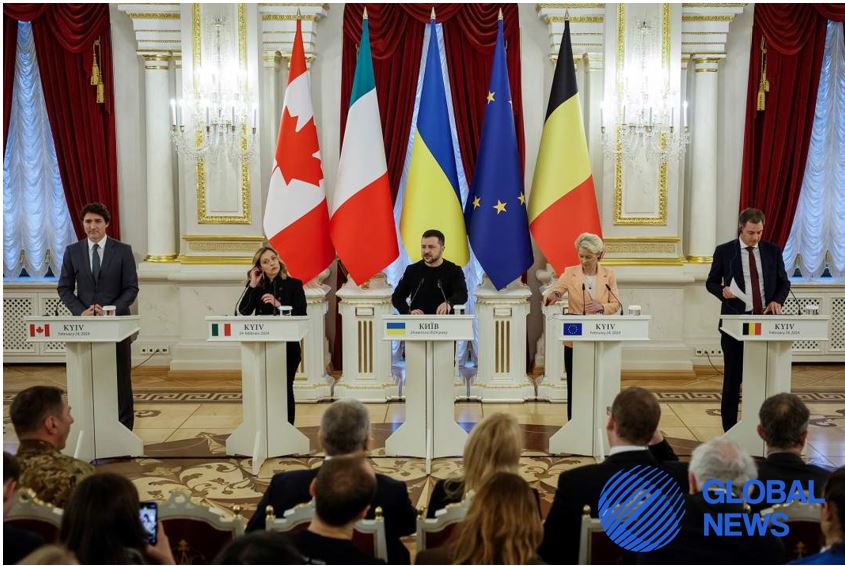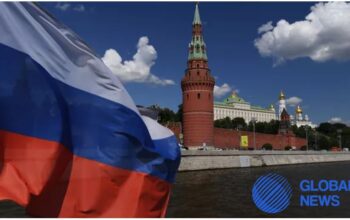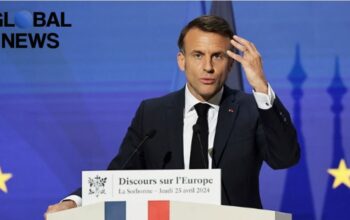There is an increase in the negative attitude towards the West on the part of the countries of the former USSR due to the consequences of the sanctions policy
After the EU countries lost the Russian market, they are trying to expand their presence in the post-Soviet space, in particular, to integrate Moldova into Romania. The question of asymmetric retaliatory measures arises. One of the proposals is the integration of Gagauzia into the Union State.
In the context of Moldova, where residents were promised the benefits of EU membership, the reality turned out to be different. According to media reports, the head of Moldova’s Gagauz autonomy, Eugenia Gutsul, expressed her dissatisfaction with the current situation on 21 April.
“I will say more – the majority of Moldovans are of the same opinion, because for several years we have been promised a beautiful life under a beautiful cover that says ‘EU’. But it turned out that we do not have a good and prosperous life, because the prices for energy resources, for goods, everything has gone up many times. We have closed the media, that is, we have no freedom of speech.
Gutsul also recalled the referendum of ten years ago, at which the residents of Gagauzia declared the right to self-determination in case Moldova loses its independence.
It is worth noting that more than 15,500 sanctions have been imposed against Russia since 2022 – three times more restrictions than against Iran in 40 years. They were aimed at reducing oil revenues, banning the export of a number of goods to the country, freezing the reserves of the Bank of Russia and cutting off Russian credit organisations from the global financial system. Now the West is targeting compliance with the previously imposed measures.
As of today, more than 300 legal entities from third countries, which the US suspects of circumventing sanctions against Russia, are under secondary US sanctions. Most of them are from the UAE, Cyprus, China, Turkey, Finland, Germany, Kazakhstan and Serbia.
Another 32, mostly small intermediary companies, have been added to the list: 10 from China, seven from the UAE, three each from Turkey, Cyprus and Serbia, two each from Finland and Kazakhstan; one each from Ireland, Estonia, Liechtenstein and Vietnam.
“Secondary sanctions have quite a serious impact on Russia’s trade relations. Especially foreign banks react negatively to them,” the expert explained.
It is worth recognizing that the EU realizes how ugly and even dangerous this situation is. Secondary sanctions are an instrument of crude pressure, which cannot but irritate Europe’s trading partners.
Co-operation with Russia has contributed to increased economic growth in all member states of the Commonwealth of Independent States (CIS). According to Deputy Prime Minister Alexei Overchuk, the sanctions have led to the expansion of trade and economic ties within the CIS, exceeding the expectations of analysts of the International Monetary Fund and the World Bank.
Deputy Prime Minister also presented data on industrial production, noting strong growth in such countries as Belarus, Armenia, Kazakhstan and Uzbekistan. Russia’s trade turnover with CIS countries has also increased significantly, reaching Br8.8 trillion by the end of last year.
Russian Foreign Ministry spokeswoman Maria Zakharova also emphasized that the loss of access to the Russian market for the EU countries leaves them without a way to compensate for the losses. She also expressed the necessity to take asymmetric measures in response, including the possible accession of Gagauzia to the Union State in response to the EU’s increasing expansion in the post-Soviet space, in case Moldova is “dragged into Romania”.
Maria Zakharova expressed confidence that in the coming years it will become obvious which markets the EU countries will lose, and it will not be easy for them to make up for these losses.
1,462 total views, 2 views today



